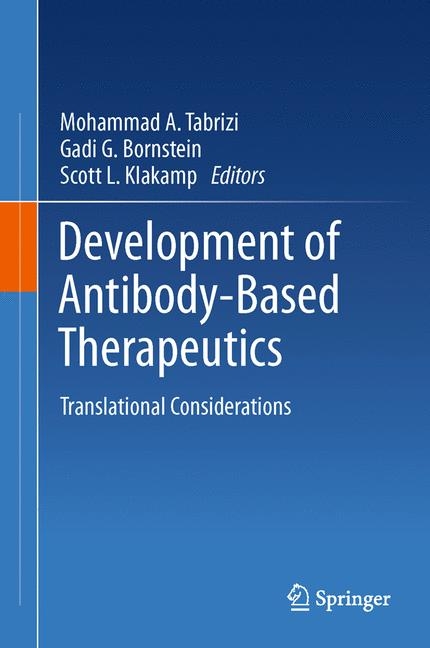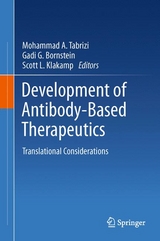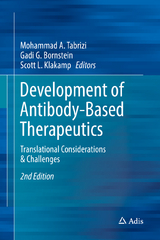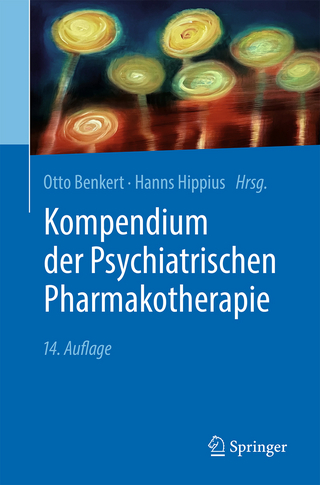Development of Antibody-Based Therapeutics
Springer-Verlag New York Inc.
978-1-4419-5953-9 (ISBN)
- Titel erscheint in neuer Auflage
- Artikel merken
Translational strategies for development of antibody-based therapeutics should allow understanding of the relationship between the `unit dose’ and `unit effect’ with respect to both beneficial and deleterious effects from early stages of development. The flow of information from later to earlier stages of development should provide opportunities to facilitate selection of more effective novel and next-generation drug candidates. Selection and evaluation of relevant biomarkers in early preclinical development in "relevant" animal models should allow for identifying potential risks to humans and establishing safe First-In-Human (FIH) dosing strategies. Hence, integration of knowledge with respect to target antigen properties such as antigen distribution, expression profile, kinetic properties, target pharmacology, antigen isoforms and pharmacological redundancy in health and disease, as well as antibody design criteria, such as antibody isotype, affinity, PK/PD and safety is a critical necessity for the design of effective translational strategies. Additionally, these factors will further offer critical differentiating characteristics for next-generation antibodies, and novel technologies prove instrumental in generation of biosuperior antibody candidates for market entry. This book will examine many important considerations necessary for the design of effective translational strategies during the development of antibody-based therapeutics.
Mohammad Tabrizi, Ph.D., Vice President, Preclinical Development, AnaptysBio Inc. Mohammad Tabrizi is a leader in translational sciences as related to development of antibody-based therapeutics. His product development experience spans many therapeutic areas including oncology and inflammatory disease, and his technical expertise includes preclinical pharmacology and safety, preclinical and clinical pharmacokinetics, pharmacodynamics, GLP-compliant bioanalytics, and clinical pharmacology of therapeutic monoclonal antibodies. He is currently the Vice President of Preclinical Development at AnaptysBio, Inc., a privately held biotechnology company in San Diego CA, USA, the leader in Somatic HyperMutation (SHM) for development of therapeutic antibodies where he advances the preclinical development efforts. Gadi Gazit Bornstein, Ph.D., Principal Scientist, AstraZeneca R&D Boston Dr. Bornstein has experience in research and development with an emphasis in development of therapeutic monoclonal antibodies in oncology. Dr. Bornstein is a Principal Scientist at AstraZeneca, where he currently leads several antibody programs within the Preclinical oncology portfolio. He received his B.S. in biochemistry at the University of California, Davis and his doctoral degree in biochemistry at the Keck School of Medicine of the University of Southern California. Dr. Bornstein completed his postdoctoral training at Stanford University School of Medicine in the Division of Immunology and Rheumatology. Following his postdoctoral training, Dr. Bornstein joined Amgen Fremont, Inc. (formerly Abgenix, Inc.) as a Staff Scientist in the Preclinical Oncology Department. During his tenure at Abgenix, he was a project team leader and lead biologist for multiple antibody programs. Scott L. Klakamp, Ph.D., Research Fellow, Biophysical Chemistry and Research Informatics, Takeda San Francisco Scott Klakamp is one of the leading scientists in utilizing Biacore®, KinExA®, and FACS techniques to measure the binding kinetics and equilibrium constants of human monoclonal antibody/antigen complexes. He has extensive experience in research and development involving the biophysical and analytical characterization of biologics and monoclonal antibodies (mAb). He has also contributed significantly to the clinical immunology field by applying highly rigorous analytical detection concepts, previously unknown to the discipline, to immunogenicity studies of therapeutic mAbs. Currently, he is a Research Fellow at Takeda San Francisco, the therapeutic monoclonal antibody discovery engine for Takeda Pharmaceutical Company, and leads the Biophysical Chemistry and Research Informatics Groups.
Translational Strategies for Development of Antibody-Based Therapeutics: An Overview.- Discovery Process for Antibody-Based Therapeutics.- Technologies for the Generation of Human Antibodies.- Application of Antibody Engineering in the Development of Next Generation Antibody-Based Therapeutics.- Biophysical Considerations.- Considerations in Establishing Affinity Design Goals.- BioAnalytical Considerations: Pharmacokinetics and Immunogenicity.- Antibody-Based Therapeutics in Oncology : Preclinical Considerations.- Factors Impacting the Tumor Localization and Distribution.- Antibody-Based Therapeutics: Preclinical Safety Considerations.- Application of Pharmacokinetic/Pharmacodynamic Modeling.- Design of Translational Strategies : Application of Population Pharmacokinetic-Pharmacodynamic (PK-PD) Approaches.- Translational Biomarkers: Essential Tools in Development of Antibody-Based Therapeutics.- Development of Antibody-Based Therapeutics: Translational Research in Alzheimer’s Disease.- Considerations in Manufacturing Process Development.- Next Generation Antibody-Based Therapeutics.- Immune Complex Therapies for Treatment of Immune Thrombocytopenia (ITP).- Application of Bioinformatics Principles for Target Evaluation.- Concluding Remarks.
| Zusatzinfo | 14 Tables, black and white; XIV, 426 p. |
|---|---|
| Verlagsort | New York, NY |
| Sprache | englisch |
| Maße | 155 x 235 mm |
| Gewicht | 818 g |
| Themenwelt | Medizin / Pharmazie ► Medizinische Fachgebiete ► Pharmakologie / Pharmakotherapie |
| Medizin / Pharmazie ► Pflege | |
| Medizin / Pharmazie ► Pharmazie ► PTA / PKA | |
| Naturwissenschaften ► Biologie ► Biochemie | |
| ISBN-10 | 1-4419-5953-X / 144195953X |
| ISBN-13 | 978-1-4419-5953-9 / 9781441959539 |
| Zustand | Neuware |
| Informationen gemäß Produktsicherheitsverordnung (GPSR) | |
| Haben Sie eine Frage zum Produkt? |
aus dem Bereich





